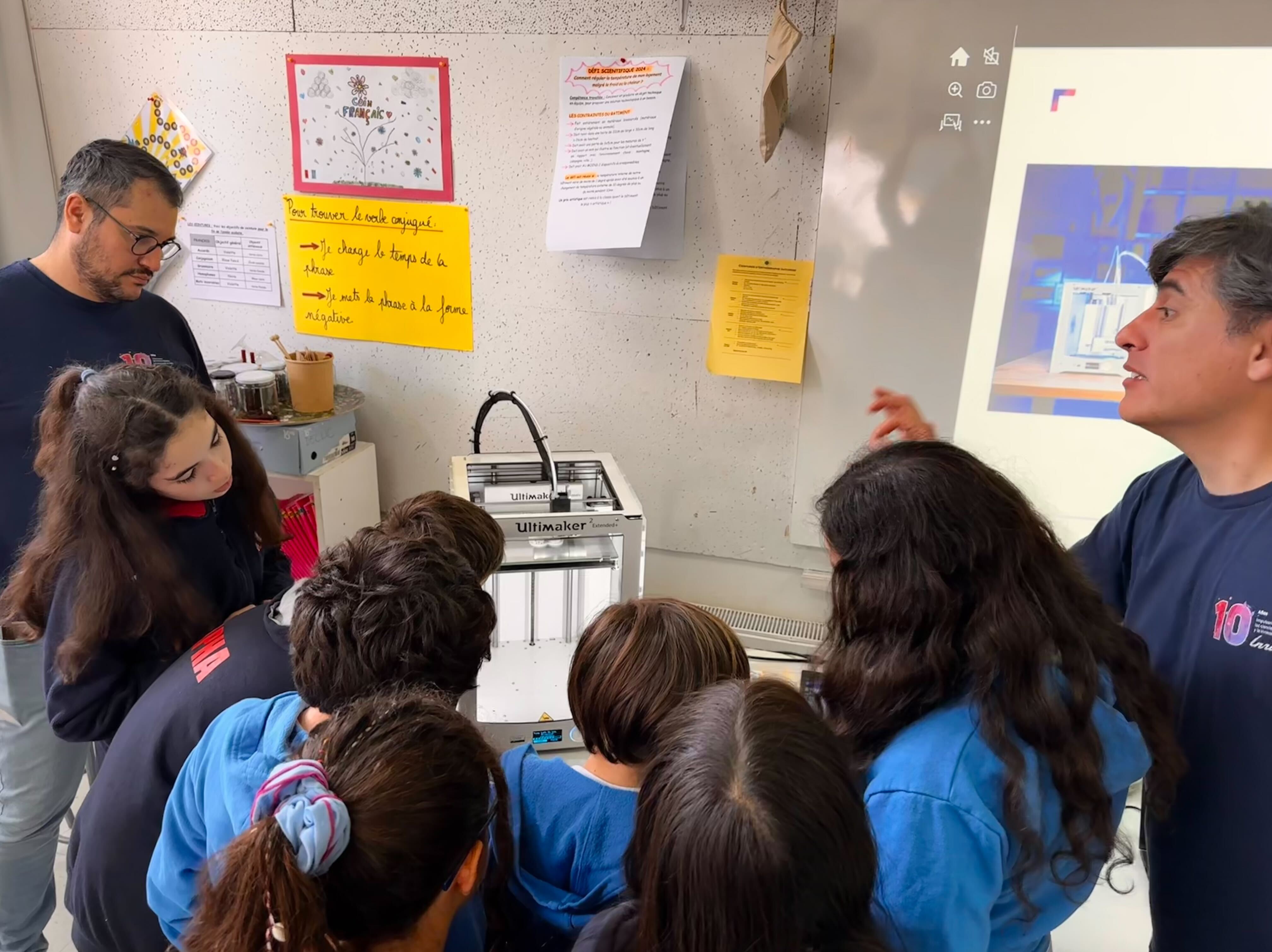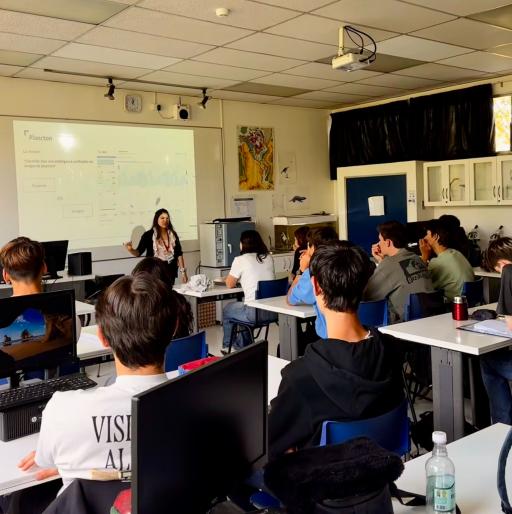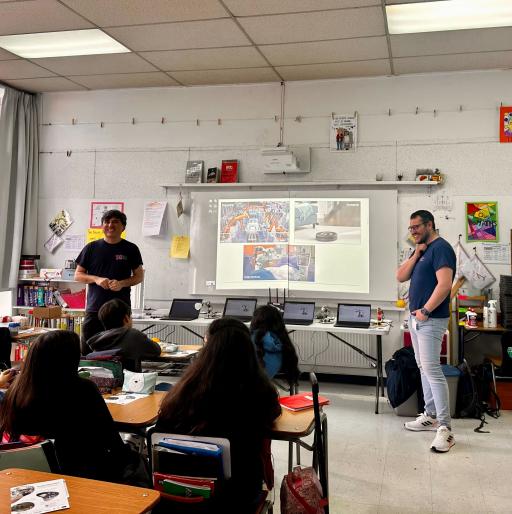
For two weeks, students from the Lycée Antoine de Saint-Exupéry in Santiago, the third largest French high school in the world, were able to participate in the various activities offered as part of a new edition of the Fête de la Science. This event was created in 1991 by the French Ministry of National Education and Youth and is held globally in the educational establishments of the Agency for French Education Abroad (AEFE Network). In Chile, it is organized by the French Institute of Chile and the French Embassy in Chile with the collaboration of various institutions, including Inria Chile.
On this occasion, Inria Chile organized different activities for the students of the Lycée Antoine de Saint-Exupéry at both the Vitacura and Colina sites. We presented our project OcéanIA, where artificial intelligence, ocean protection and climate change combat and mitigation converge. We also presented an on-site demonstration of the Airward project, which aims to detect forest fires through the intelligent capture of satellite images using drones and artificial intelligence, as well as programming and robotics workshops.
Inria Chile bringing Science and Technology closer to the new generations
To talk about the relationship between climate change and the contribution of plankton in this aspect, Sofia Callejas, Data Scientist at Inria Chile, presented to students from kindergarten to 4th grade about the different types (or taxonomy) of Plankton, as well as their physical differences.
Luis Valenzuela, postdoctoral researcher, presented his talk “Artificial Intelligence and Genomics to understand the oceans and climate change”, for 6th grade students, giving more details about the marine microbiome communities worldwide, their importance in climate regulation and the contribution of artificial intelligence models to understand the phenomenon at a global level.
Also, to present on programming and robotics, engineers Rayner De Ruyt and Raul Rippe conducted workshops to program and build different types of robots that have been oriented to specific uses, ranging from scientific to artistic themes. In the session, students were taught how to connect and control a robotic arm called Poppy Ergo Jr, using the SNAP interface.
Poppy is a community initiated by researchers at Inria in France, which promotes free software by sharing hardware, software and web tools for building different robots. The interdisciplinary community is composed of beginners and experts, scientists, educators, developers and artists, who develop robotic creations that are easy to build, customize, deploy and share. Learn more about Project Poppy here
De Ruyt also presented on the increase in forest fires in recent decades, using as examples the cases of Chile in 2017 and France in 2022. During his talk, he introduced the AirWard platform, which allows real-time transmission of images captured by drones. This platform runs a predictive model capable of identifying pockets of fire and smoke, thus facilitating the fight against forest fires.
The Fête de la Science, an initiative of the French Ministry of Higher Education and Research, has sought to bring together children and young people in different areas of science, focusing on the challenges and trends of various industries, including the use of artificial intelligence, environmental protection and learning about technological and scientific advances in the sector.


